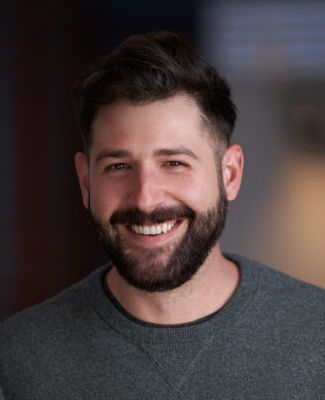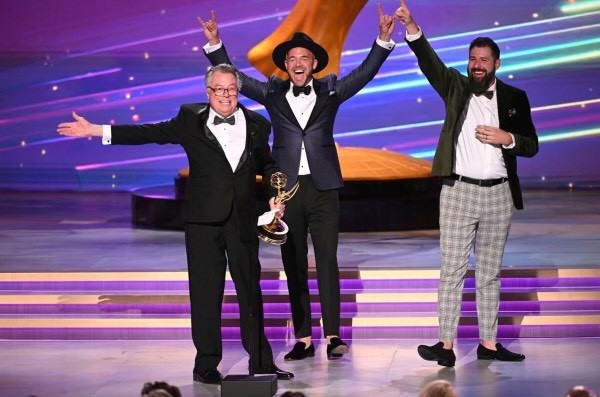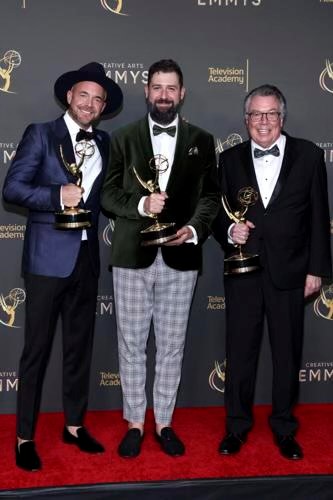 When Phil DeTolve started fiddling with microphones and mixers as a kid, he wasn’t thinking about winning Emmy Awards. He just wanted to make his garage band sound great.
When Phil DeTolve started fiddling with microphones and mixers as a kid, he wasn’t thinking about winning Emmy Awards. He just wanted to make his garage band sound great.
A lifelong musician, DeTolve came up playing piano and guitar, and recalls regular jam sessions in his various bandmates’ basements and garages. “The first thing we had was a single-track cassette player,” he says. “We recorded on that until we got a TASCAM 4 Track, and this blew our minds, putting drums and guitars and things on separate tracks. I was always fascinated by the tech side of recording and mixing, which at the time, that was basically what I was doing.”
That fascination—or, in his words, “healthy obsession”—led DeTolve to MSU where he received two BAs in 2007, one in music and one in telecommunications. To this day, the degrees complement each other well, and thanks to his unique skillset, DeTolve has accumulated a monster list of sound mixing credits. As a re-recording mixer at Levels Audio in Hollywood, he’s worked on projects including “America’s Got Talent,” the Netflix reboot of “Unsolved Mysteries,” and “Taylor Swift: The Eras Tour.”
In its simplest form, DeTolve’s job in bringing these programs to life involves creating a soundtrack worthy of the screen.
“As the mixer, I take everything they record to camera, plus the score from the composer, sound effects and Foley—basically every element of sound,” he says. “It’s my job to balance everything so the story is told and the dialog, music and sound effects come together into a nice, cohesive package.”
A good mix brings life to the story. Big music, intense sound effects and impactful dialog create a dynamic sonic experience that’s influential to a viewer’s experience.

Phil DeTolve, right, called his experience accepting his Emmy on stage “surreal,” with celebrities looking at him, including Dick Van Dyke sitting in the front row.
“It’s not just keeping everything level and smooth. You need to make big moments big, and you’ve got to keep quiet moments smaller,” DeTolve says. “That kind of dynamic creates a compelling soundtrack.”
DeTolve says his goal is to help engage the viewer in the story so they forget about the sound completely. “Most people don’t notice a good mix, but they do notice a bad mix. When nobody notices it, I’ve done my job.”
But this year, he’s gotten plenty of notice, raking in six award nominations for various projects in 2024. Perhaps most notably, he and his mentor and mixing partner, Brian Riordan, earned a Primetime Emmy win for their work on “Billy Joel: The 100th – Live at Madison Square Garden.”
The concert, which was shot during Joel’s record-breaking 100th consecutive performance at the venue and aired on CBS, received critical acclaim—thanks in no small part to DeTolve’s role.

Phil DeTolve, center, on the red carpet following his 2024 Emmy win with Brian Riordon, CEO of Levels Audio (left), and Brian Ruggles.
“The idea is to feel like you’re sitting at the soundboard at Madison Square Garden,” he says. “We worked hard to make it feel like you’ve got the best seat in the house.”
It worked. From the chest-thumping kick drum to the layered vocal harmonies, the result is more than a playback of the show. It’s a big, dynamic concert experience.
Although this was the third Emmy win of DeTolve’s career, it was his first time attending the event. And taking the stage to accept his award? “It was quite a trip,” he says. “Being up there and Mark Cuban’s looking at me, Jimmy Kimmel, Nikki Glaser. I’m seeing celebs, and it’s like, ‘you’re looking at me right now.’ It was surreal for sure—Dick Van Dyke was in the front row.”
But despite his Hollywood career and crowded trophy shelf, DeTolve keeps looking to learn new things and lend a hand to up-and-comers in the business.
“One of the things I’ve learned over the years is to share the wealth,” he says. “Share the experiences, share the knowledge, because there’s no point in hoarding all that information. I saw that bestowed upon me by the Spartans who came out here and have incredibly successful careers. They’ve shared their insights and given me great advice and mentorship and friendship. And the common thread is Michigan State. I’ve taken that as a lesson in every aspect of my life: If you can help someone, do it.”
This article originally appeared on the MSU Alumni Office website.


 When Phil DeTolve started fiddling with microphones and mixers as a kid, he wasn’t thinking about winning Emmy Awards. He just wanted to make his garage band sound great.
When Phil DeTolve started fiddling with microphones and mixers as a kid, he wasn’t thinking about winning Emmy Awards. He just wanted to make his garage band sound great.
